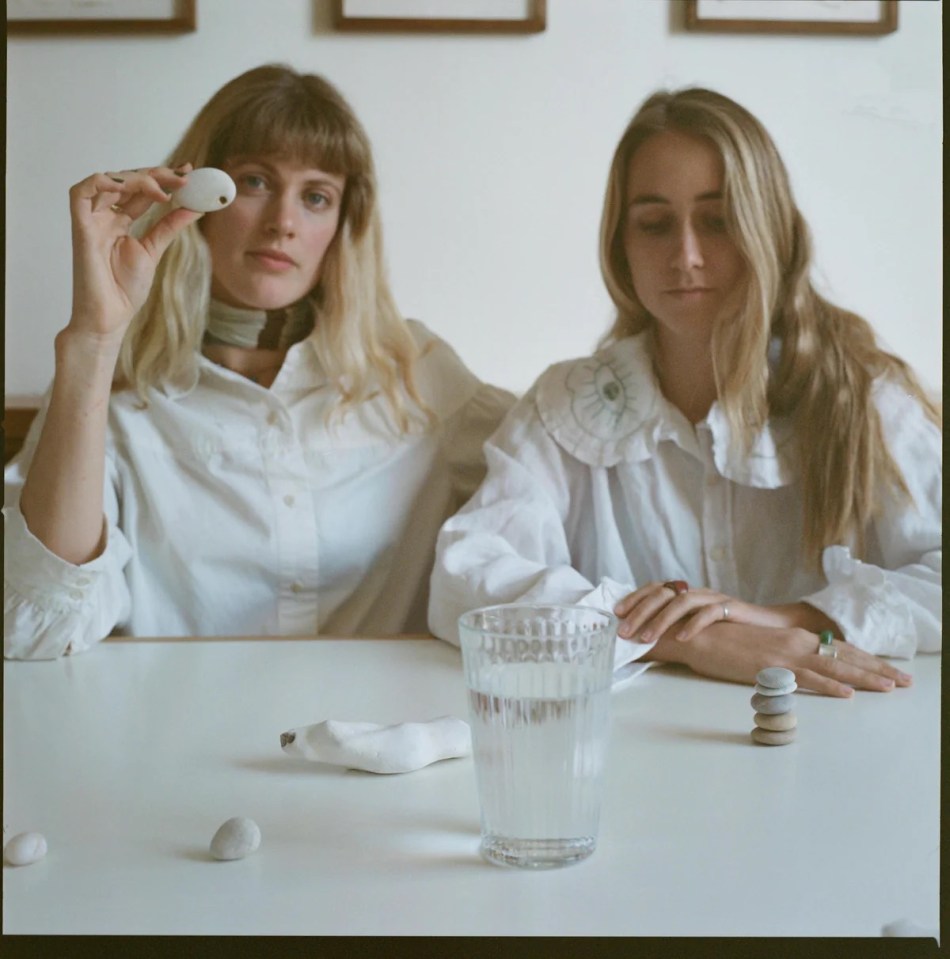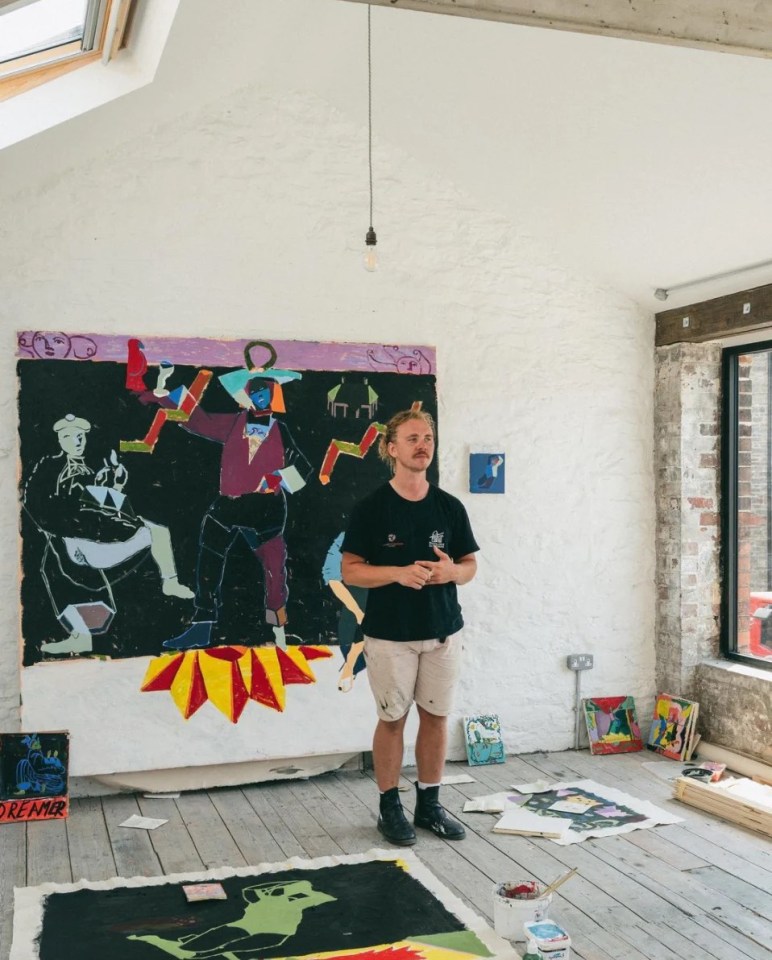A gallery of one’s own: challenging the sexism and racism of the art world

It is an unusual thing to do these days, announce a child’s birth in the newspaper. Nonetheless, Isabella Rothman and Sophie Merrell, born one day apart, shared a spot in the same column of the same newspaper, after both of their grandparents sent in submissions to let the world know they had arrived.
For the next two decades, the two, now 28, would live almost parallel lives; Rothman working for a contemporary Japanese art gallery in London in her twenties, and Merrell at her mother’s gallery in Westbourne Park.
It wasn’t until Rothman, Merrell and her twin brother, Angus, put on an exhibition in London, that their paths crossed, eventually leading to the creation of their own gallery, Wondering People, which aims, in the terminology favoured by tech companies, to “democratise” the art world.
“We did (the exhibition) with the three of us, and it was a really pivotal moment for us, knowing that we shared the same passion.”
The two remained friends from that point, during which Merrell moved to Amsterdam to work for a non-profit gallery.
Her experience, shockingly familiar in an industry often built on young, badly paid hopeful artists or collectors, was one of sexism, racism and insane expectations of loyalty.
She worked in what she calls an “incredible space” with a photographer who “was probably the worst person I’ve ever worked for.”
“He was sexist, he was racist, he would shout the whole time, and when I told him I was leaving him, it was like I was divorcing him.”
Even her descriptions – leaving him – are more like that of a romantic relationship than an employer.
She eventually left after a job in Milan with him, where, for three weeks, he had booked just one hotel room for the two of them.
Looking back now, Merrell puts it down to stinginess rather than anything more untoward, but it was the moment she resolved to quit.
Only then did they two consider doing something together.
“I think it was from knowing lots of artist friends, who had just left art school, or were at art school and wanting to sell their works and had nowhere to go,” says Rothman.
He was sexist, he was racist, he would shout the whole time, and when I told him I was leaving him it was like I was divorcing him
Sophie Merrell
One of the first people on their books, Ed Burkes, was from another Amsterdam connection. Burkes has gone on to win the Jonathan Vickers Fine Art Award, one of the largest prizes for emerging artists, and still works with Wondering People.
As with any other new firm trying out “democratisation”, it normally means they want to lower the barrier for entry, whether that be through digital innovation, or simply making it cheaper.
Wondering People does a bit of both: they source many of their artists from Instagram, getting submissions from across the world, but they also undercut the commission charged by traditional galleries – normally in the ballpark of 55 to 60 per cent.
Initially, Wondering People charged only 35 per cent, before nudging it up to 40 per cent for online sales and 45 per cent for exhibitions. There is such widespread acceptance at how high the bar is, that they didn’t have to dramatically slash the price.
But even with these lofty ideals, both Rothman and Merrell remain products of a cosy industry.
When talking about how they found Burkes, it’s all about friends-of-friends.
“A friend of ours, we met in Amsterdam, and she was working at Calvin Klein and her boyfriend, Max Radford, who now runs the Radford Gallery, who we did our last exhibition with, and his friend from university, from art school, was Ed Burkes.”
Merrell’s mother owns the Wilson, Stephens and Jones Gallery in Notting Hill, and Rothman spent her weekends at antiques fairs with her grandmother, who had a house laden with gigantic tapestries from Georgia.

But both spoke approvingly of Guts Gallery in Hackney, which aims to bring artists from underrepresented backgrounds into the limelight.
“(Guts) set out to challenge the exclusivity of the art world, and that’s what we do as well.”
While neither Rothman and Merrell studied art formally, and actively encouraged artists who haven’t trained through art schools, the question of privilege is an enduring one the creative sector is struggling to address.
Simply the good fortune of growing up around people who have an appreciation for the creative industries makes the pathway into the art world easier.
Rothman or Merrell don’t expect to challenge the top tier galleries, who regularly sell works for millions of pounds. The art fairs, which are a staple part of the calendar, often have a space for new and emerging galleries, but hidden – like a shameful secret.
“We went last time (to the London Art Fair) and there was just no one there, it felt dead because it’s in the back end.”
Merrell has been going every year with her mum’s gallery and it’s barely changed.
“It’s still the same kind of stuffy old gallerists, the old men, white men, who are wearing red trousers.”
Neither Merrell or Rothman look like they would be caught dead in a place frequented by men in all shades of salmon-coloured chinos and indeed, with Merrell, who ordinarily is based in Paris, off to Glastonbury at the time we spoke, and Isabella living ensconced in the Sussex countryside, it doesn’t look like that will change.
